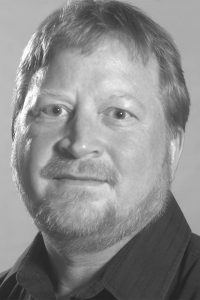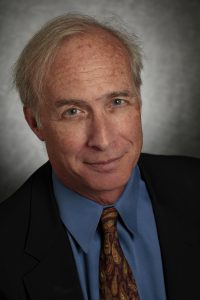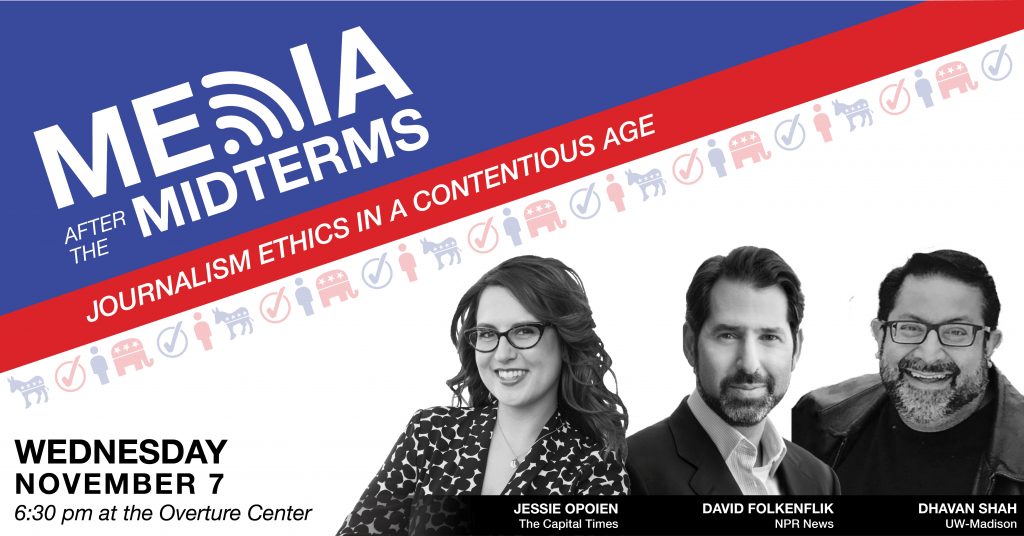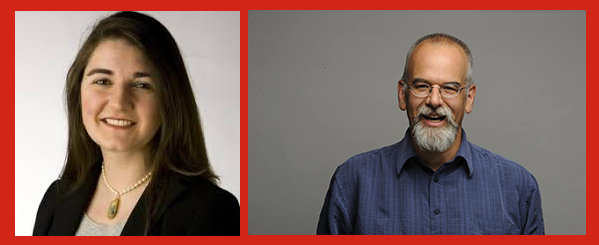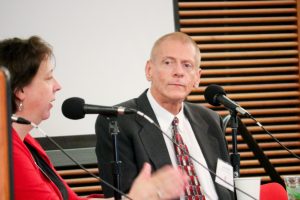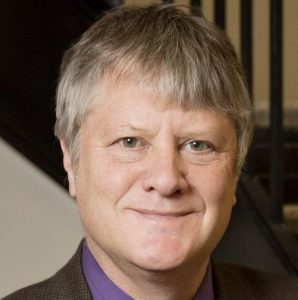
Stephen J.A. Ward
Stephen J. A. Ward is an internationally recognized media ethicist and the founding director of the Center for Journalism Ethics at the University of Wisconsin–Madison. His new book, “Ethical Journalism in a Populist Age: The Democratically Engaged Journalist,”argues that a new form of journalism is needed to address the challenges that a populist age presents. The Center for Journalism Ethics spoke with Ward about what he sees as the urgent need to reexamine journalism’s approach to neutrality.
This interview had been edited for length and clarity.
Q: Tell us about your book.
A: The book comes out of the very existential crisis in democracy, not just in America but around the world. I had written quite a bit about dialogic democracy and other ideals, but I became increasingly dismayed and worried about what was happening around the world with far-right populist groups, people like Donald Trump, and the development of intolerance right at the heart of important democracies. Basically, the book is an attempt to say how to do journalism responsibly and democratically in a populist era where there are many forces leading us against democracy. The book starts with the premise that democracy is in trouble, that in fact journalism is part of that problem and we can’t be disengaged. I talk a lot about how journalists have to do things, be engaged and reject previous models of neutrality.
Q: What are some of the ethical challenges that journalists face in the populist age?
A: One of the basic problems, for journalists, is how to verify information that is washing over us from all sides and is out there on social media. There’s a verificational truth aspect to all of this, which is incredibly difficult right now and it’s only going to get worse.
The second one is how to deal with demagogues, ideologues and ideologically diverse populous, such as you have in the United States (I’m not speaking only about the U.S. but it is a very good example). What do you do as a journalist in a situation where you have a public divided and where a good deal of people simply refuse to listen to journalists simply because it does not fit their world view or their political view? And where they prefer to believe people who agitate and build up fears of other people and believe that the media are generally totally biased? Breaking through that is really a challenge. First of all, journalists, the good journalists, have to stand out from the crowd, by doing great journalism. But I think they have to do more than that. One of the problems of the public sphere is not just about fake facts. Most of the issues that are out there, that are really affecting us, are about matters of principle. Political principle: the meaning of the First Amendment, the meaning of the Second Amendment, the notion of what democracy requires of us as citizens, notions of human values, of dignity and respect for others who are not like us. These are not simply getting the facts wrong, these are matters of philosophy. Journalists have to be careful of facts, and pointing out fake facts, and I think what we have to do with journalism is dig very deeply into our culture and explain our culture to ourselves. Why do we believe in these principles? How do they apply in various circumstances? There is that interpretative element of journalism that’s more important than ever.
Q: Your response to the populist age is the democratically engaged journalist. What is that and how does it align with ethical journalism?
A: What I’m doing is arguing against a very old tradition, what I call the professional objective model, which basically said what a journalist does is provide unvarnished facts and just the facts in a very neutral manner. I think that model lends itself, in a time of deliberate disinformation, to manipulation. Because basically what is a fact is up for grabs, and if you’re not actively doubting what people are saying you are going to be manipulated. Secondly, you can’t simply repeat what people are saying. I don’t think that was ever right. Many people out there are saying extreme racist statements that you simply should not repeat. You want journalists these days to call liars liars, and the President is a liar. You need journalists who are engaged in the sense that they do not worry excessively about being neutral. Historically people think of objectivity as a sort of neutrality, what I’m arguing is that’s a really bad view. I’m talking about objective engagement. Journalists are engaged and advocates for what? For dialogic democracy. They have goals, let’s not pretend they don’t. Journalists are in the business of advocating for a certain type of society. How are we objective then? We’re objective not in our goals; we’re objective in our methodology.
Q: How do we move from the theory of democratically engaged journalism to actually practicing it in newsrooms across the country and the world?
A: I call this macro-resistance. We, as a culture and perhaps globally, have to come together in coalitions to fight the forces that are fighting against democracy and rationality. Journalists can play a part. I want to stress that it has to be journalists in league with educators, universities, schools of journalism and with all kinds of other actors out there, where we come together to create mechanisms and public processes to enforce the sort of journalism and public discourse that we want.
Within journalism, it begins with the teaching of journalism. We have to teach journalists not only skills of the latest technology, but skills in really great verification. And we also have to teach them to know something about the world, to know philosophy, the world’s history, the philosophies in the cultures, so they can be very good interpreters of the social scene. We have to deepen the mind, we need cosmopolitan students, students with very broad minds, not just technical minds.
The other thing they have to do in newsrooms is become transparent. But I think also actively helping citizens to identify where stories come from and the reliability of those stories and sources. There’s a lot of ways we can build some confidence and try to help reduce the public discern.
The other thing that’s crucial is journalists have to reposition themselves in society from being at arm’s length and being an inward-looking culture to an outward culture where we actually go out and work with people. We should be teaching society-wide programs in the schools about how media works and how we evaluate them. Journalists need to be part of that. They need to be going to schools and telling students what the difference is between a good journalist and a bad journalist, what’s the difference between a good report and propaganda. Breaking down the barriers between themselves and society, there’s just enormous work to be done there.
Q: You write that we need a journalism beyond facts, how can we achieve that?
A: I don’t want to come off as saying facts are not important, of course, but straight news reporting is only one of many, many types of media that the democratic public needs. The other stuff we need is great explanatory journalism. We need a re-emphasis on great investigative journalism. We need more advocacy journalism talking about where society is falling down and needs to be reformed. We need to give the citizens a chance to participate in discussions around media and media ethics. And finally, we need to create media spaces for dialogue, spaces that aren’t about great ratings but in fact where you open up the space to reasoned dialogue. There’s nothing new about this, you can see this going on already, but we need way more of that and we need it online. When we do those forms of journalism we’re leaving fact-stating behind, that’s what I mean by “beyond facts” – we’re going to be great interpreters of our culture.
Q: How can journalists cover hate speech and extreme speech ethically?
A: You do not always have to cover it. You have to first of all develop some policies in your newsrooms as to when you think it’s necessary to cover someone who is having a racist meeting. Not all of it is worth covering, but some of it we have to cover. Where racist people or extreme speech groups start to become politically powerful enough to capture, I hate to say this, the public’s imagination or support, you have to report on this. A lot of people say “don’t report on this at all.” Unfortunately, that’s just part of journalism. We can’t ignore this. And if you decide you’re going to cover them, it’s not like you just say, “Whatever they say we take it down, we’re neutral reporters and we just say whatever the guy said.” You have to be incredibly critical in your reports about what these people say, which means you don’t give them a free pass. Your report itself points out the dubiousness of certain claims statistically, you have to make questions of whether certain things they say are worth reporting. There are lots of coverage decisions you have to make.
You have to ask yourself the harm you’re going to cause to public order or even groups in the community by reporting on it. So, minimizing harm, attempting in any way you can to provide as much context and as much critical analysis of it. For example, you have to give the background and a sense of their importance. If they get one percent of the popular vote is it worth being at the top of the news? You have to cover some of this, but you have to do it in a critical manner.
Q: Looking forward, you write that we’re currently in a toxic public sphere. Do you think we can move past that?
A: I do think we can. But it’s going to have to be a huge society-wide effort and it’s going to take some time. I’ve been thinking recently – with the synagogue shooting in Pittsburgh and the pipe bombs – that you’re going to have to admit that there are going to be a certain percentage of the population that is ideologically fixed and will never change their mind. They’re never going to listen to facts and counter perspectives. They don’t want to hear about it. I don’t think we should give up on the rest of the populous. I think there’s lots of people out there, people in the center, we have to appeal to them and hope they become politically activated. The biggest problem right now is they’re not. There’s a lot of apathy, a lot of people didn’t vote in the last [presidential] election. These people are going to have to stop saying, “Politics is bullshit, and it’s terrible and I don’t want anything to do with it,” to realize that their country demands that they do something about it.
The main thing I’m trying to say is, this is very urgent. Journalists need to rethink what they’re doing and think of ways they can push back on a lot of these forces. For me neutrality or disengagement simply is not an option, either for journalists or for ordinary citizens. I teach young people and a lot of them are so apathetic about politics. I understand why they’re so cynical. But I hope that the urgency of the situation we’re in will get through to some of the book’s readers.
The Center for Journalism Ethics encourages the highest standards in journalism ethics worldwide. We foster vigorous debate about ethical practices in journalism, and provide a resource for producers, consumers and students of journalism. Sign up for our quarterly newsletter here.

